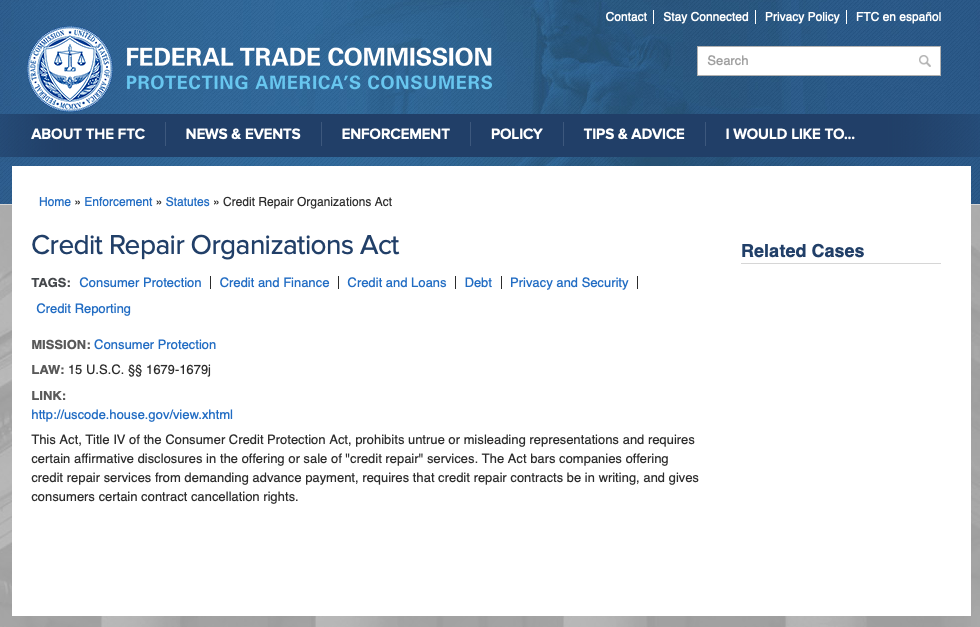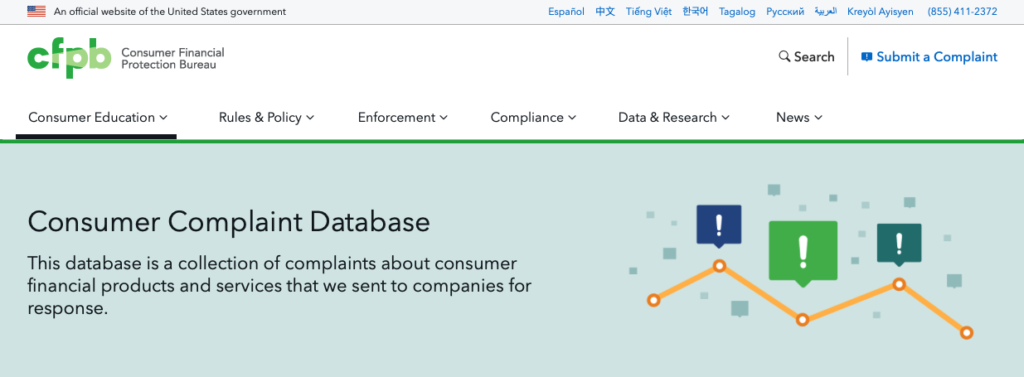- Is your credit history less than golden?
- Do you want to improve your credit score?
- Are you looking for help from a credit repair company?
Well, you’ve probably seen ads claiming to “repair†your credit report or promising a “new credit identityâ€. Though they may seem like just the solution to getting your credit back on track, often the companies running those ads are scammers.
While there are legitimate credit counselors who can help you with improving your credit, there are companies that are not legitimate–and they know it. When looking for help with credit repair, it is important to choose a credit repair company that is transparent, ethical…and delivers on its promises.
So how can you spot the scam credit repair companies? What can you do if you hire one mistakenly?
Let’s dive in.
What we’ll cover
10 Red Flags That Signal a Credit Repair Scam
Scam credit repair companies may employ one or multiple illegal practices when they work with people in bad credit situations. To start, they may claim to guarantee a specific increase in your credit score. While there are legitimate ways to improve your credit score, these companies typically neglect to advise you on them.
Here are ten of the most common practices that should alert you that your credit repair company is a scam:
- Demand payment before performing any work on your behalf (which can include agreeing to a monthly payment plan)
- Promise or guarantee to remove negative data on your credit report, whether it is accurate on not
- Advise you to mislead credit reporting companies about one or more of your accounts
- Suggest that you change or alter your identity in order to improve your credit history
- Advise you to enter false information on credit or loan applications
- Avoid providing you with a written contract detailing the services, the terms, and conditions for work to be done
- Request that you dispute information in your credit report, even if you know it’s accurate
- Refuse or avoid explaining your rights as a borrower and what you can do on your own
- Tell you to not contact credit reporting companies directly
- Specifically advise you to apply for credit using a CPN–a credit privacy number or credit profile number–they provide you rather than your own Social Security Number, which can immediately put you at risk of committing identity theft
If you encounter a credit repair company exhibiting any of these red flags, you should abandon them and look for a more reputable company or consider repairing your credit yourself (see below).
Credit Repair Organization Act (CROA)

Credit repair companies in the U.S. must adhere to the Credit Repair Organizations Act. The CROA is a federal law that helps protect consumers against scams by setting guidelines for legitimate credit repair services.
This law–enforced by the Federal Trade Commission (FTC)–requires credit repair companies to disclose:
- Your legal rights in a written contract
- Details of the services they’ll perform
- Your three-day right to cancel without any charge
- How long it will take to get results
- Total cost of services
- Any guarantees that will be offered
According to the CROA, credit counseling companies can’t request or receive payment until they’ve completed the services they’ve promised. Some companies will attempt to structure monthly payment plans to try to avoid this requirement. However, all forms of upfront payment demands are illegal.
Fighting A Credit Repair Scam
What can you do if you hire a credit repair company only to find it made false claims about its services? Under the CROA, you have some options.
- You can sue the company in federal court for total losses or what you paid them, whichever is higher
- You can seek punitive damages — money to punish the company for violating the law
- You can join in a class action lawsuit against the company
- You can report the issue to authorities (see below)
How to Find Legitimate Credit Repair Help

Credit counselors that operate legally can provide assistance, though it is often helping to remove negative information from your credit report and/or setting up a repayment plan to boost your credit score. Fortunately, there are some ways you can find a legitimate source for help.
- You can research the company you are interested in at the Consumer Financial Protection Bureau’s database for complaints.
- You can read company reviews on the Better Business Bureau website.
- You can search the U.S. Department of Justice list of approved credit counselors for local or national companies.
- You can ask all credit counseling companies you’re interested in to send free information about their services. (A reputable company should be willing to send you information without requiring you to provide any details about your situation.)
DIY Credit Repair
What most scammers don’t want you to know is they or even legitimate credit repair companies can’t legally do anything you can’t do yourself to improve your credit profile. For instance, disputing credit report errors is a legal right available under the Fair Credit Reporting Act. You can file disputes with the three major credit bureaus (Experian, Equifax, TransUnion) at no charge.
The more common route to repairing your own credit comes from getting on a repayment plan. You can do this informally by creating a budget that allows for consistent payments to your creditors. Or in some cases, you can set up a formal agreement with your creditors. In either case, if possible, pay above a minimum required payment.
One thing to keep in mind is that credit repair is not a one-time fix. Only a realistic debt repayment plan and a minimum of 3-6 months will start to improve your credit.
Reporting Credit Repair Scams
If you get scammed by a credit repair company, you should report the incident with the following authorities:
State Attorneys General
There are many state laws that protect consumers by regulating credit repair companies. If you have a problem, report it to your local consumer affairs office or to your state Attorney General (AG).
Federal Trade Commission
You can also file a complaint online with the Federal Trade Commission at ftc.gov/complaint or call 1-877-FTC-HELP. Although the FTC doesn’t resolve individual credit disputes, the agency can potentially prosecute the company if it has a pattern of potential law violations.


 Back
Back